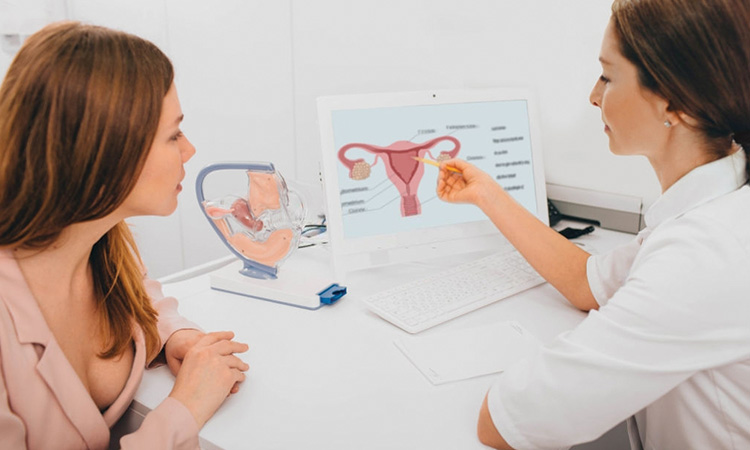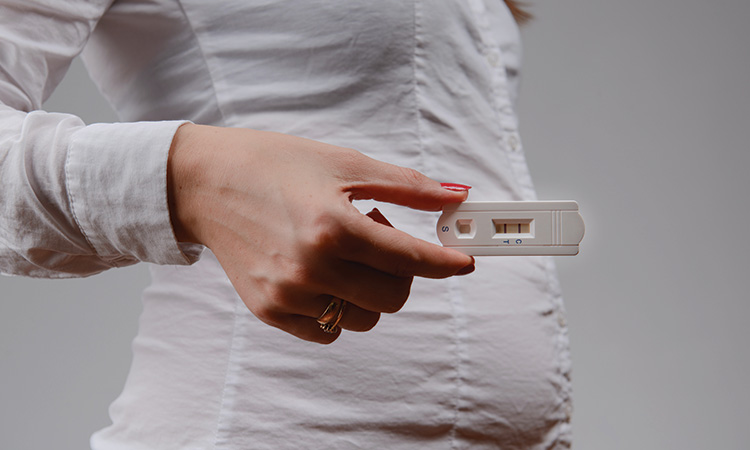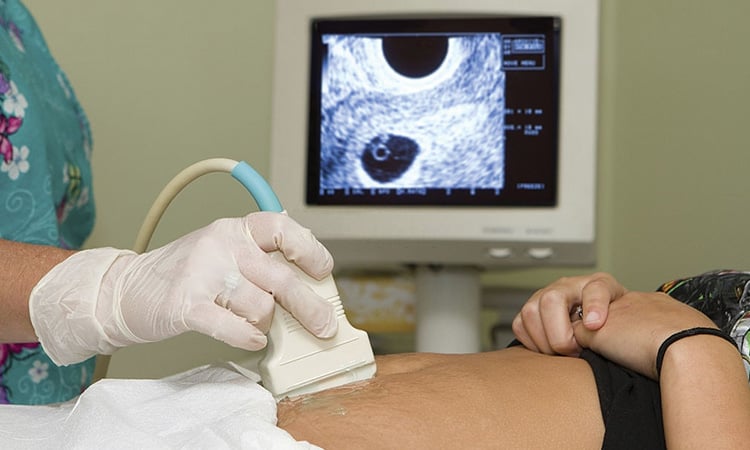Conceiving a baby is one of the most important and responsible decisions a woman will make. While many women find no difficulty in conceiving, getting pregnant is not an easy process for many others. Lets us find out how follicular study helps in getting pregnant.
However, many couples are not aware of follicle scans and follicular studies, especially if they have not yet consulted with a fertility specialist. In this article, we can get into some details of follicle scan and follicular study and know how follicular study can increase your chances of getting pregnant.
What Is A Follicle Scan?
When it comes to conceiving, ovulation is the major factor that determines getting pregnant. A female child is born with millions of immature eggs. Ovulation is a process in which one of these millions of immature eggs matures and is released by the ovary. When this egg gets fertilized by the sperm, a zygote is formed. Zygote gets implanted in the uterine wall and gradually develops into a baby.

The crucial point is, this egg will be available for fertilization only for 12 to 24 hours. Only if the sperm is available during this ovulation window, there is a chance of getting pregnant. Therefore, when trying to get pregnant it’s important to know if you are doing it at the right time.
It is all the more important if pregnancy is not happening inspite of regular intercourse.
Normally women ovulate around the 14th day of each menstrual cycle (provided she has a regular 28-day menstrual cycle). However, many women may not have a typical 28-day menstrual cycle. In such cases, the time and day of ovulation may vary each month.
Calculate Due Date With Conception Date
Therefore, tracking the menstrual cycles and ovulation is very important when you are seriously trying to get pregnant. Actually, ovulation tracking is one of the first steps recommended by doctors for couples finding it hard to get pregnant.
Finding out when the ovulation takes place and having intercourse during this time window increases the chances of pregnancy if there are no significant underlying issues. One of the best ways to determine when the ovulation will take place is the follicle scan.
To simply put, a follicle scan is a series of vaginal ultrasound scans used to determine if a woman is ovulating and pinning down when a follicle ruptures and releases an egg. This procedure is also called follicle tracking, and it gives an idea of when should you try to get pregnant to increase your chances of conceiving.
What Is Follicular Study?

An ovarian follicle is the fundamental unit of the female reproductive system. Ovaries carry a number of follicles – fluid-filled sacs that contain immature eggs. It is the number of follicle present in the ovary that determines how fertile you are.
If your ovary carries a lot of follicles, then you are capable of releasing more eggs. This increases the odds of generating healthy eggs that could increase the chance of pregnancy.
Typically, around ten ovarian follicles start to mature during each menstrual cycle. However, out of this, usually, only one will turn to a dormant follicle. Dormant follicles are mature follicles enlarged enough to release ovum during the menstrual cycle.
By evaluating follicles’ size and growth, it is possible to predict when it ruptures, and ovulation happens. Follicular study is a simple technique that enables us to determine the size of active follicles in ovaries.
This study involves assessing ovarian follicles at regular intervals and making a record of the pathway to ovulation. The follicular study, therefore, could effectively predict ovulation.
How Does Follicular Study Help In Getting Pregnant?
As mentioned earlier, trying to conceive during the ovulation window increases the chances of getting pregnant tremendously. Follicular study is so systematic that it can effectively predict ovulation.
After a follicular scan, the couple planning for pregnancy should try for conception when the ovulation is expected to occur. On the other hand, if the couple is under fertility treatment, follicular study helps to monitor follicles’ development and the best time to pull out an egg for fertilization.
When Is A Follicular Scan Needed?
Any woman who is trying to conceive could get a follicle scan done. However, it is usually recommended as one of the first treatment lines for couples who fail to conceive even after trying for more than one year or have had multiple miscarriages.
The age of the mother is another factor in initiating a follicular scan. This is because ovulation and the pregnancy rate decreases considerably once the women cross 35 years. Therefore in such cases, a follicular scan is initiated if the couple is actively trying to get pregnant for the past six months but fails.
Besides, a follicular study or follicular scan is suggested when a woman has PCOS and is trying to conceive. Irregular cycles and irregular ovulation are typical characteristics of PCOS. This necessitates tracking the ovulation to conceive faster. And a follicular scan is the first line of treatment.
Sometimes, a woman does not feel any ovulation symptoms like mild cramps towards the middle of the menstrual cycle. It can be a sign of anovulatory cycle or a cycle without ovulation. In such cases, a follicular scan is needed to confirm the issue.
Likewise, if a woman is on IVF treatment, she will be given drugs to boost ovulation or to produce multiple follicles. In such cases, a follicular scan is mandatory to evacuate
Does Follicular Scan Help With Any other Issues?
The follicular scan or follicular study can not only detect and assess the follicular growth; it can also detect some other ovulation related issues that can potentially obstruct pregnancy. Follicular scans help the doctor to understand why many of these issues are happening.
Identifying the cause helps the doctor to take or decide on corrective measures or treatment. Also, by means of the follicular scan, these issues can be tracked, and the doctor can evaluate the progress in his treatment.
A follicular scan helps to find out if follicles are not growing properly and if they are rupturing before maturing. This is one of the major issues that impede pregnancy.
Likewise, a follicular scan also helps to find out if the uterine lining is thickening in association with the follicular release. This will impede the implanting of the fertilized egg (that is, if fertilization happens) into the uterine wall.
Premature rupturing of follicles and thickening of the uterine wall associated with ovulations are two ovulation related issues that obstruct the pregnancy. Both these issues can be detected by follicular scan and take measures to correct it on the right time
Can Follicular Monitoring Help To Conceive?

Here we have to clear some points. Monitoring the follicular growth helps to pin down the exact time of ovulation. And trying for pregnancy at that fertile window increases the chance of conceiving tremendously.
It can also find out certain problems associated with ovulation that could potentially obstruct pregnancy. On the other hand, follicular monitoring is not capable of detecting issues that impede pregnancy post ovulation. Also, it cannot guarantee fertilization and implantation.
Thus follicular scan only helps to predict ovulation and helps to conceive in that aspect. Even after trying to get pregnant in this fertile window and if you cannot conceive, you have to undergo more tests and treatments to get pregnant.
What Is Follicular Test For Ovulation?
As explained above, women’s ovaries are loaded with fluid-filled follicles containing immature eggs, oocytes. Towards the middle of each menstrual cycle, one of these follicles will be mature enough and becomes ‘dominant follicle.’ It is this dormant follicle that ejects the eggs during ovulation.
During follicular study or follicular monitoring, the doctor will observe the follicle’s development from the initial stage until the time it is ready to release the egg. The follicular study also assesses the size and number of follicles present in ovaries. This scan helps the fertility specialist assess fertility and, therefore, the ability to conceive.
The scans done to monitor your follicles’ development will also assess the consistency and thickness of the uterine lining. This study determines the fertility window and finds out the exact time to fetch the eggs for fertility treatment like IVF.
It is a painless procedure, as it is performed externally, just like any other ultrasound scan. It might sometimes be uncomfortable, especially if it is performed transvaginally, but definitely not painful. Usually, the scanning begins around day 9 of the cycle and continues till day 20.
When Is Follicular Scan For Ovulation Done?
A follicular scanning should be performed several times during a single menstrual cycle. Normally doctors perform four to six scans for better assessment. The number of cycles needed to be monitored depends on the doctor’s decision. The doctor decides it depending on the issues identified during the course of follicular monitoring and the mother’s age.
Even after trying during the infertility window, if the couple fails to conceive, the doctor may prescribe fertility-boosting medicines. These medicines boost the follicle growth and its maturation and then schedule another follicular scan.
The scan becomes more intense and frequent if the couple fails to conceive even after taking fertility-boosting drugs or choosing to go for IVF.
How Is Follicular Test Done?

A follicular scan is performed by a well-trained sonographer or by the infertility specialists themselves. The follicular tracking scan is a painless procedure and will generally take about 5 to10 minutes.
The ultrasound performed can be either abdominal or transvaginal. A transvaginal scan allows the sonographer to see the ovaries and follicles within them more clearly. A transvaginal scan also examines and takes pictures of follicles and internal organs like endometrial lining that can be analyzed further.
The scan enables the sonographer to see when the follicles vanish from the picture or the follicle walls become collapsed or irregular. This tells the eggs are released. Scans can be carried out easily. Each scan can be performed in 5-10 minutes. A patient gets a report from their doctor detailing the findings.
Follicular tracking is a great method for getting pregnant at the right time and maximizing the chances of a positive outcome. We wish you all the best to conceive soon!
